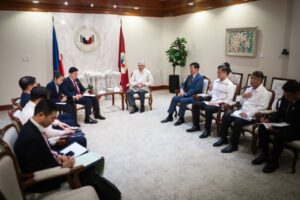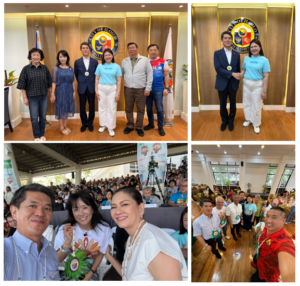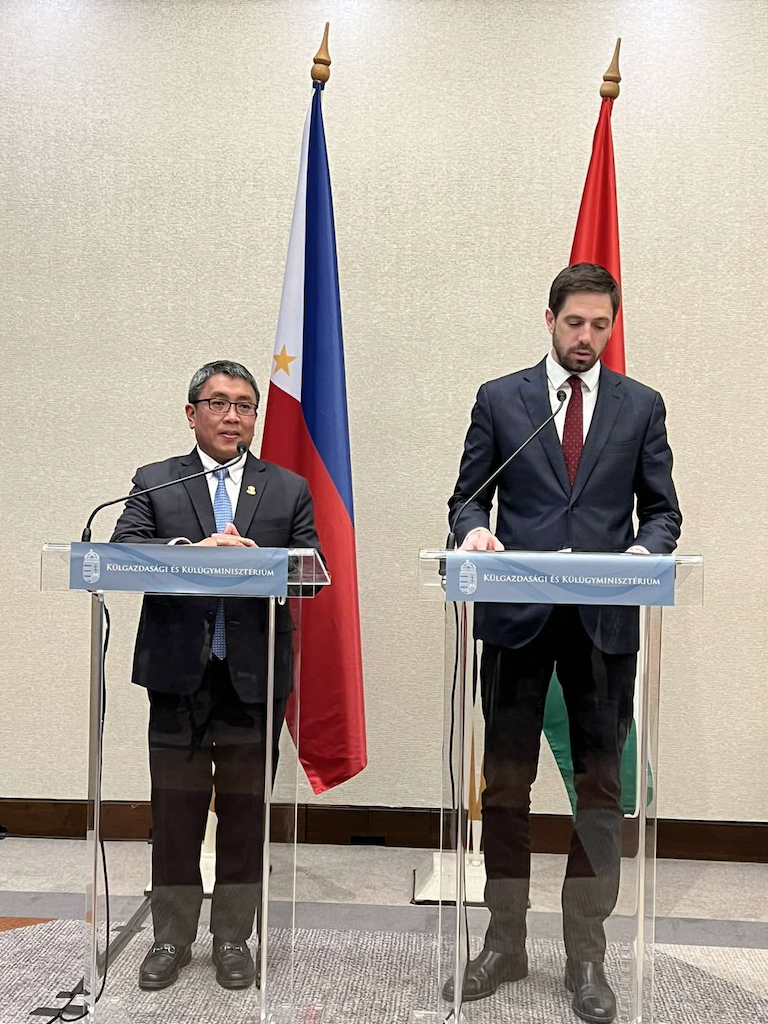
[DTI Undersecretary Allan B. Gepty and MFAT Deputy Minister Levente Magyar]
Philippine Department of Trade and Industry (DTI) Undersecretary Allan B. Gepty and Hungarian Deputy Minister for Foreign Affairs and Trade (MFAT) Levente Magyar recently highlighted the significant progress achieved by both countries under the Joint Commission on Economic Cooperation (JCEC) mechanism.
The trade officials reported, the JCEC, now on its 5th year, has resulted to several agreements, cooperation activities, and stakeholders benefitting in areas such as trade, education, agriculture, and labor, since its inception in 2019.
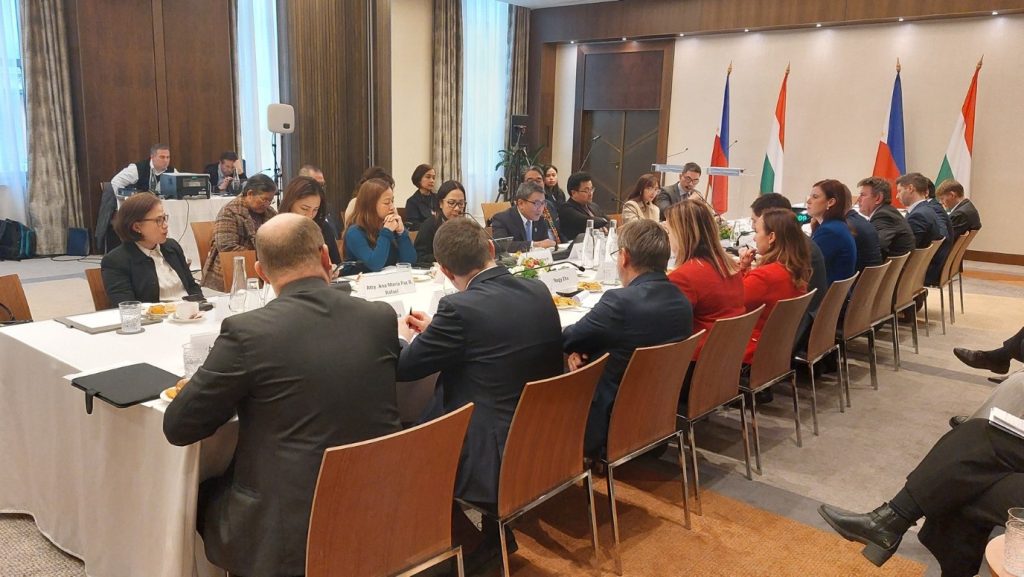
During the plenary session, Undersecretary Gepty said, “The Philippines and Hungary have established extraordinary friendship that transcends beyond diplomatic relations. We have established dynamic and productive economic relations over the last five years and are positioned to gain further, particularly in trade and investments.”
The total merchandize trade between the Philippines and Hungary reached USD189.84 million in 2022, displaying an increasing trend since 2020 when total trade momentarily declined because of the pandemic.
Likewise, exports and imports between the two countries showed an increasing trend and a potential to further improve current levels. Among the European Union (EU) Member States, Hungary ranked as the Philippines’ 7th top export market and 15th top Generalized Scheme of Preferences Plus (GSP+) export market in 2022.
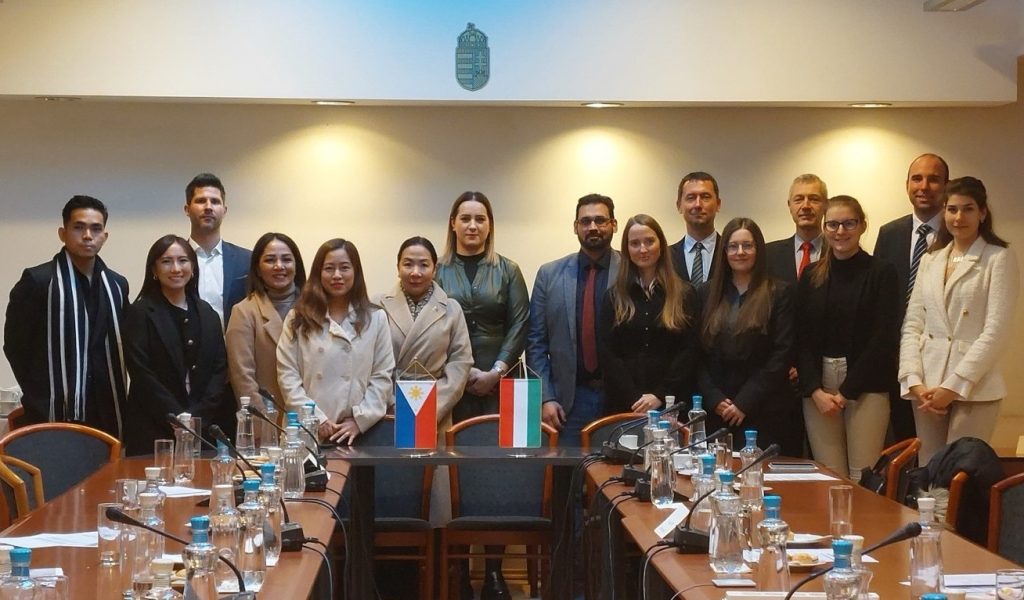
In terms of inward investments, the Philippines sees opportunities in Hungary’s expertise in agriculture, information and communication technologies, digital technologies, and water technologies, as well as in Philippines’ key industries such as renewable energy, green metals, electric vehicles manufacturing, and smart and high-tech light manufacturing. Further, at least 60 Hungarian companies engaged in agribusiness, electronics, water treatment and supply, IT solutions, healthcare, shipbuilding, renewable energy, smart solutions and human resources/ recruitment participated in the business forum held on the sidelines of the JCEC.
On education, the two sides highlighted the great interest and uptake of Filipino scholars of Stipendium Hungaricum—a fully sponsored scholarship program offered by the Hungarian government to 35 Filipino students every year in courses such as agriculture and sustainable development, medicine, water management engineering and hydrology, architecture and protection of cultural heritage, natural sciences, and environment sciences, among others. Both countries also look forward to implementing the Memorandum of Understanding on Vocational Education and Training (VET) signed in 2022.
Updates on agriculture-related partnerships were also discussed during the JCEC. These include the Hungarian University of Agriculture and Life Sciences’ (MATE) extensive collaboration with various universities, colleges and research institutions in the Philippines as well as with the Philippine Department of Agriculture in aquaculture development, landscape design, urban planning and architecture, rice cultivation and waste management.
Apart from these, both sides lauded its cooperation on labor which resulted in concrete outcomes as the number of Filipino workers in Hungary has already reached 9,000 with expectations to increase further, given Hungary’s continued strong interest in hiring Filipinos in the field of agriculture, services, transportation and trucking industries, as well as healthcare. MFAT’s Deputy State Secretary for External Economic Relations Katalin Bihari cited Filipino workers are known for their excellent linguistic ability, high quality of work, and reliability. She stressed Hungary will make every effort for this cooperation to continue.
Hungary also reaffirmed its readiness to offer a tied aid loan of USD33 million to the Philippines to finance social infrastructure projects related to water management such as the Philippine Multisectoral Nutrition Project (PMNP) under the Department of Social Welfare and Development (DSWD). The project aims to provide interventions for communities to access clean and safe drinking water.
This year’s JCEC meeting apparently coincided with the Philippines and Hungary’s 50th year of diplomatic relations, demonstrating a commitment to pursue mutual prosperity. In line with this, comparatively new and prospective cooperation activities in energy, science, technology, and innovation, integrated circuit (IC) design, space science and technology, environment, health, and transportation are expected to position the two economies for greater heights.
